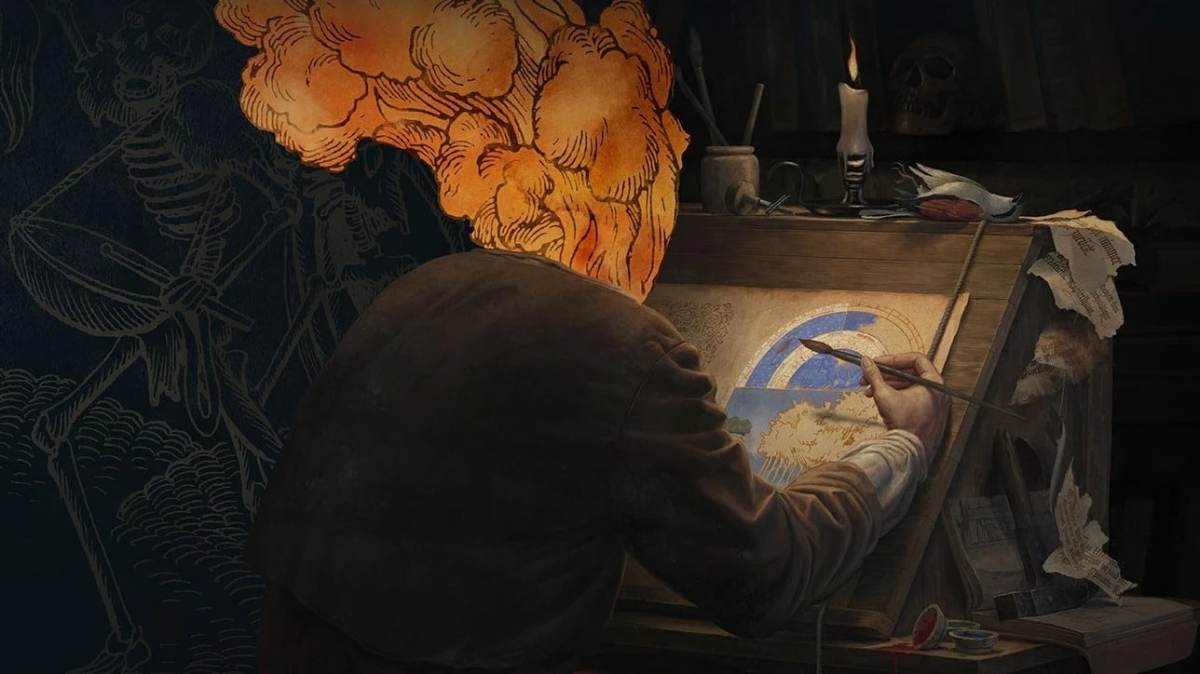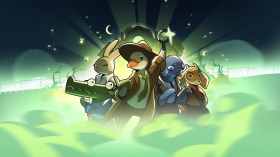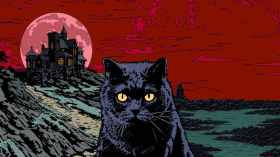In the brief credits roll at the end of Pentiment, Obsidian Entertainment acknowledges the contribution of an ‘Italian Hand Gesture Consultant,’ a role undoubtedly rare – if not wholly unique – in video game development. Elsewhere in the credits, a team of five is listed as working on the font design, including one person dedicated to historical typography research. Taken together, such recognitions suggest Obsidian has been diligent in its efforts to authentically depict life in a small village in 16th-century Bavaria.
Indeed, Pentiment is a sophisticated work of historical fiction, steeped in conscientious period detail, while simultaneously presented as an unassuming, even archaic, point-and-click adventure imbued with the trappings of a murder mystery – or indeed, several murders.
The title references pentimento, the Italian word for the traces of earlier work glimpsed on a canvas, still visible through freshly-painted layers – a kind of secret history lost to time, yet foundational. In Pentiment, this idea extends beyond the canvas to serve as a metaphor for how people come to understand the story of their past. Whether it’s in the tales passed from generation to generation through familial lines, or in the books transcribed from language to language and circulated from library to library, or in the physical ruins of erstwhile societies where new structures are built on top of old, history is conceived of as an accumulation of layers – layers of beliefs, of perspectives, of interpretations.
The details of history are settled and re-settled over time, the meaning of events constantly mediated through questions of who paints each layer, what they choose to depict, and what remains visible beneath.
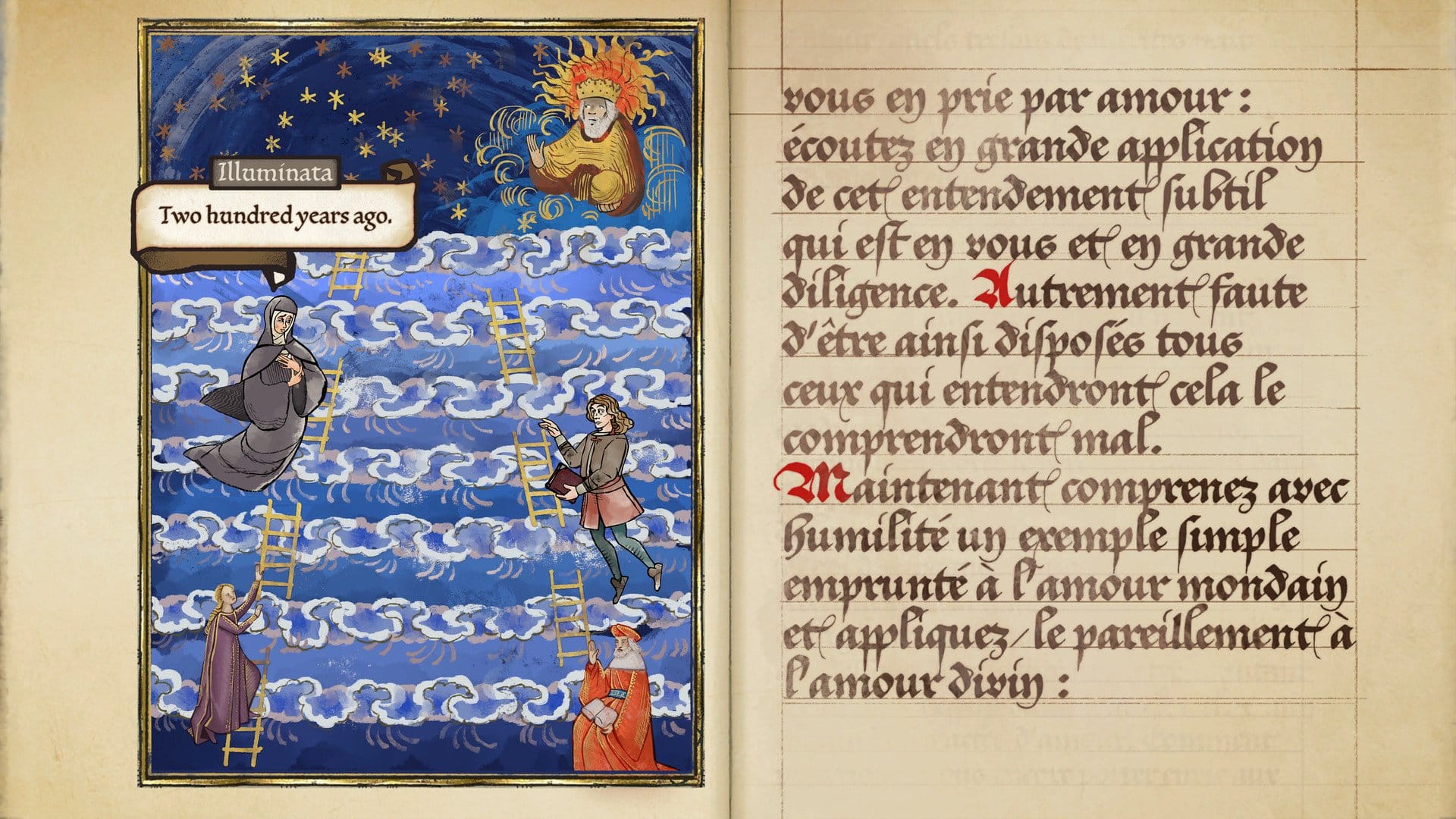
It’s appropriate that you play as an artist. Andreas Maler is a young nobleman apprenticed as an illuminator, illustrating books transcribed by the monks at Kiersau Abbey, and working on his so-called masterpiece, the painting that’s going to kickstart his artistic career. Shortly, a local lord visiting the abbey to check on the progress of a book he had ordered turns up dead, seemingly murdered. The old monk who found the body is quickly accused, falsely, according to Andreas, and you’re soon tasked with investigating the death, and clearing your friend’s name.
Obsidian is best known for their role-playing games – the likes of Fallout New Vegas and Pillars of Eternity – but Pentiment eschews any combat or character stats in favour of conversation. As he seeks the truth of what happened, Andreas explores the abbey, the nearby village of Tassing and surrounding forest, talking to people to find out what they know. Did they know the baron who was killed? Did he have a history with any of the townsfolk? Is there anyone who held a grudge against him? And what about the accused monk – did he have a motive? And who can speak to or vouch for his character?
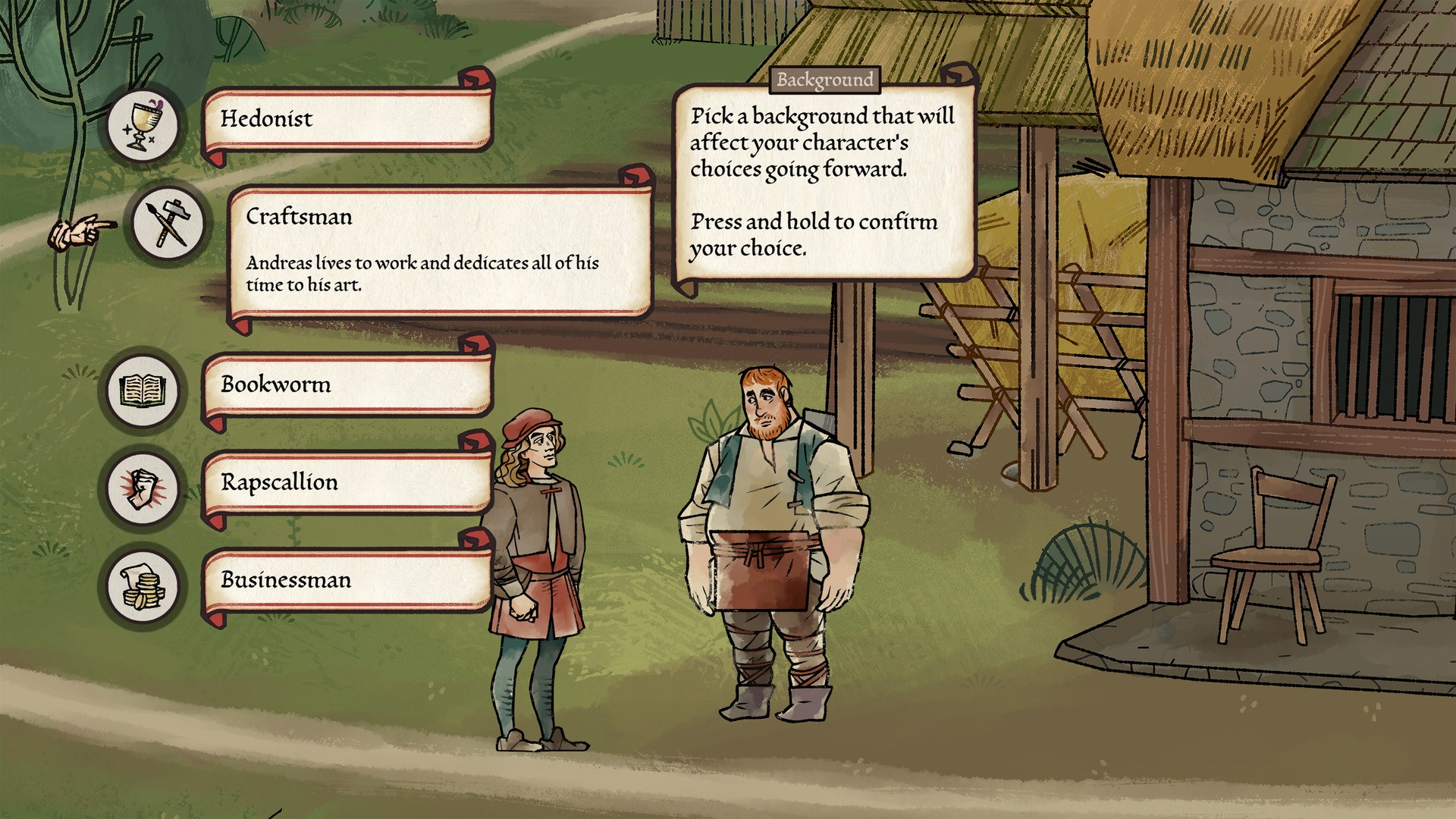
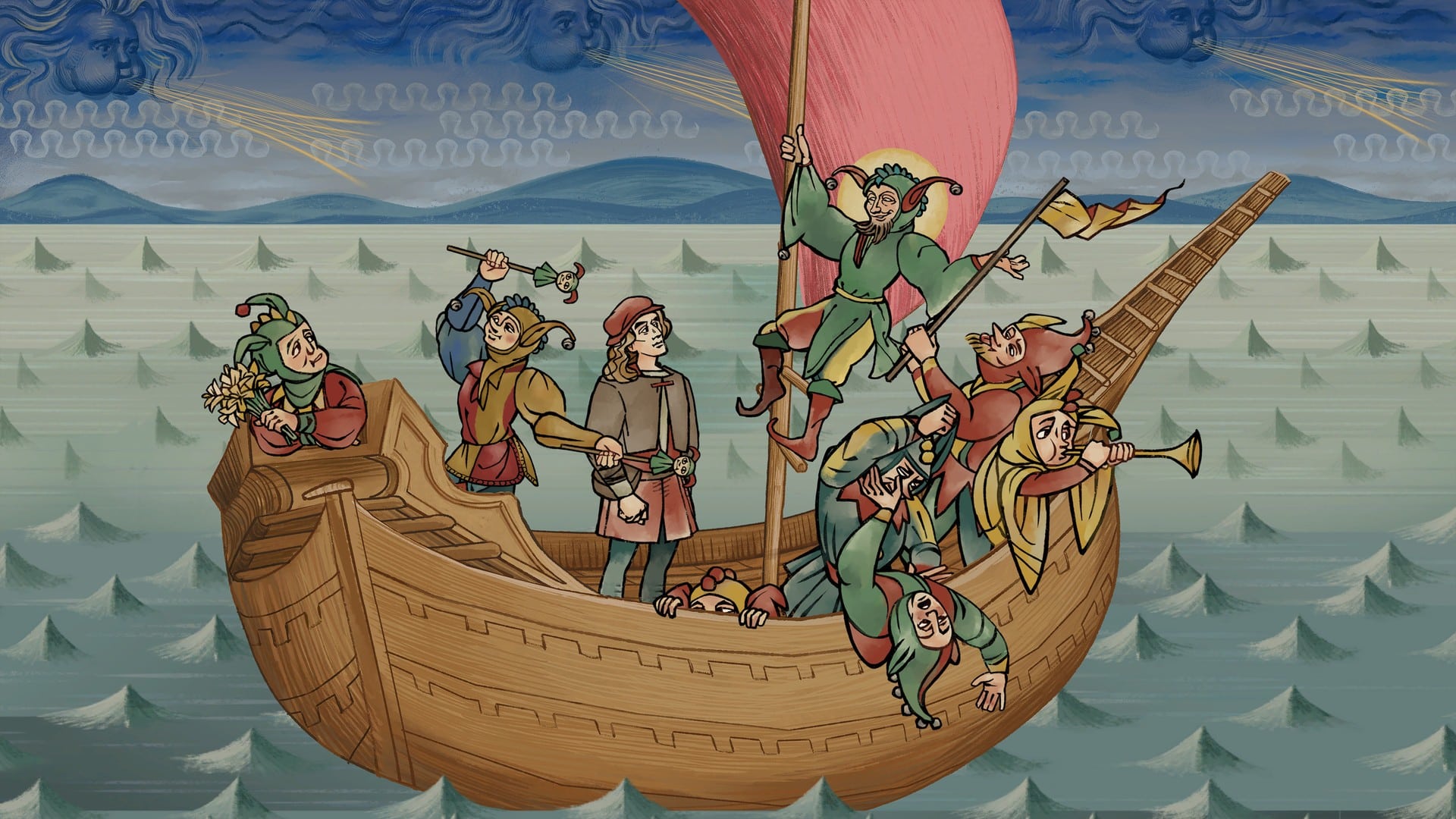
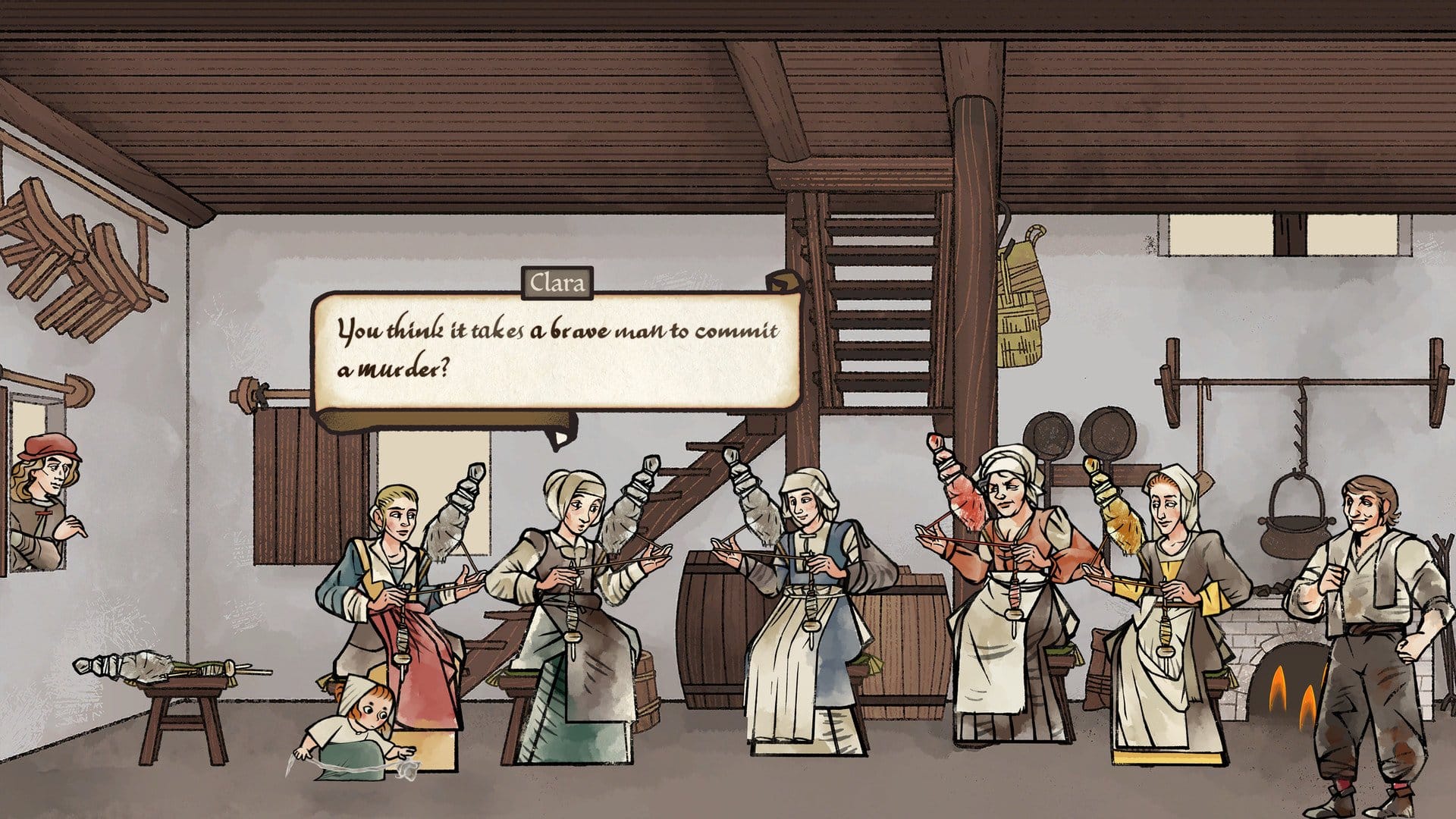
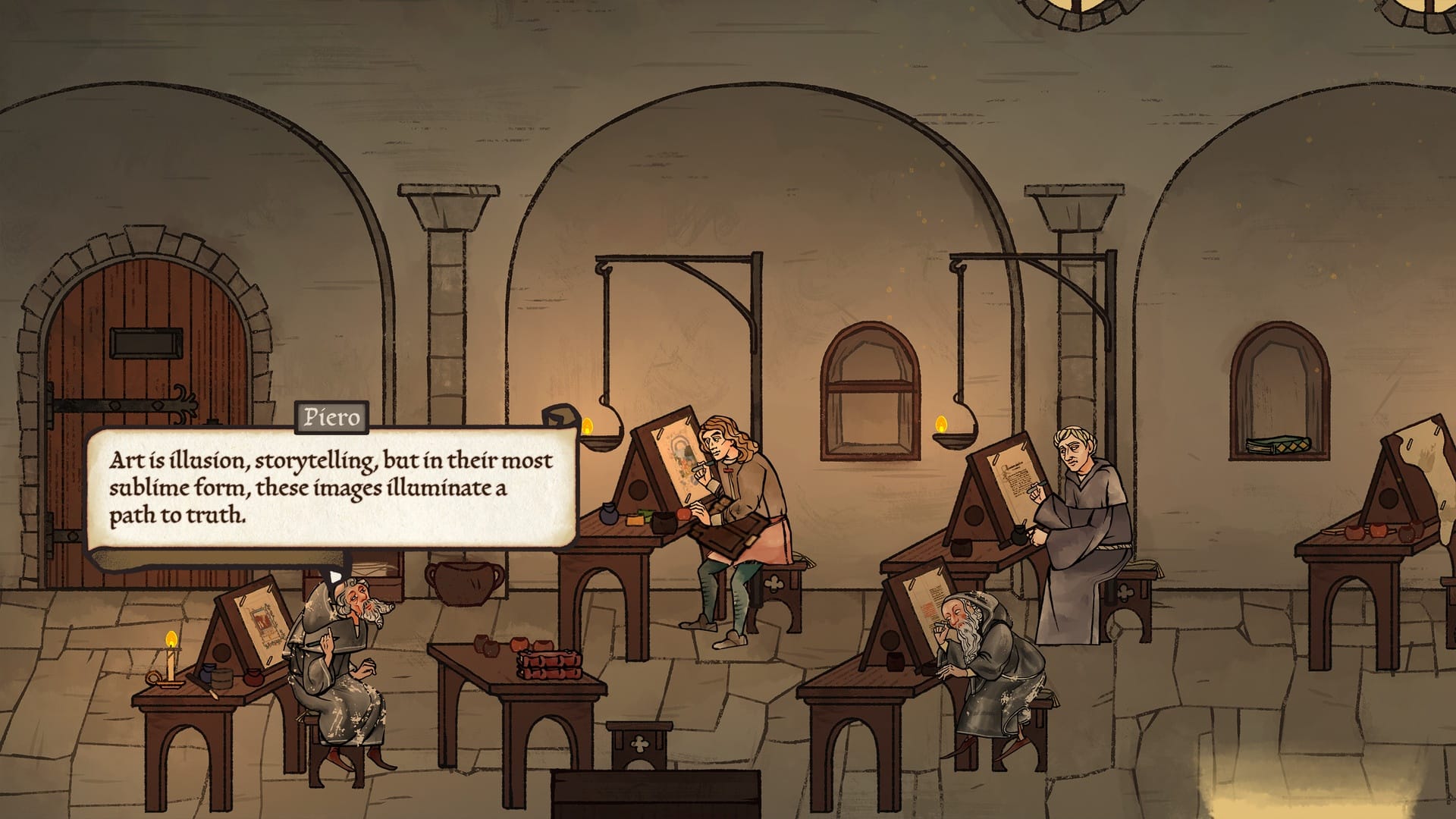
One conversation leads to the next, offering clues as to what might have occurred in the abbey, and teasing leads to follow-up if Andreas has the time. While events don’t run to a real-time clock, Andreas can only do so much each day. Choose to spend the afternoon at the tavern, hoping someone might let slip some useful tidbit a few rounds in, and you’ll forfeit the opportunity to catch up on some potentially valuable gossip as the village women pass the time while spinning wool. In these moments, when you’re weighing up where to focus your efforts, mulling over which leads show the most promise, you’re aware that you’re going to miss things, that inevitably you’re always going to be working from partial information.
Read: Pentiment would not have existed without Xbox Game Pass, says Obsidian
Andreas himself reveals his own anxiety at the pressure he’s under to deliver against the clock, and to make decisions based on the evidence he’s been able to secure. It’s not hard to relate. This nagging sense can feel frustrating, at least at first. But as the murder investigation is resolved and life in the village continues, time passes, and while Andreas finds himself unable to leave the village behind, it becomes clear that Pentiment is interested in more than just whodunnit. The village of Tassing itself, its several dozen inhabitants, and tension between its pagan past, Holy Roman Empire present, and the stirrings of its Renaissance future, becomes the main story.
By the end, you’ll have spent some twenty years living in Tassing, forging friendships with the farmers, the craftsmen and the nuns, and potentially creating enemies too. You’ll have become intimately familiar with the footworn paths leading from the town commons to the church, from the mill on the hill to the charcoal burner’s grove in the forest. You’ll know to roll your eyes at brother Guy’s obsequiousness, to not provoke Peter’s quick temper, and to seek out Eva’s kind words.
Through interactions with these people and many others – the insights into their lives gleaned from talking to them while they work, or the hopes and fears they reveal around the dinner table as you share pottage and bread – Tassing comes to feel like as real a place I’ve ever visited in a video game.
As the months and years roll by, you feel those layers settling in, the weight of decisions these people have made – and that you’ve made too – shaping the history of the place. When the paint dries, you can pick up the brush again and continue the story.
Five stars: ★★★★★
Pentiment
Platforms: Xbox Series S/X, Xbox One, PC
Developer: Obsidian Entertainment
Publisher: Xbox Game Studios
Release Date: 15 November 2022
A copy of Pentiment was provided and played on PC for the purposes of this review.
